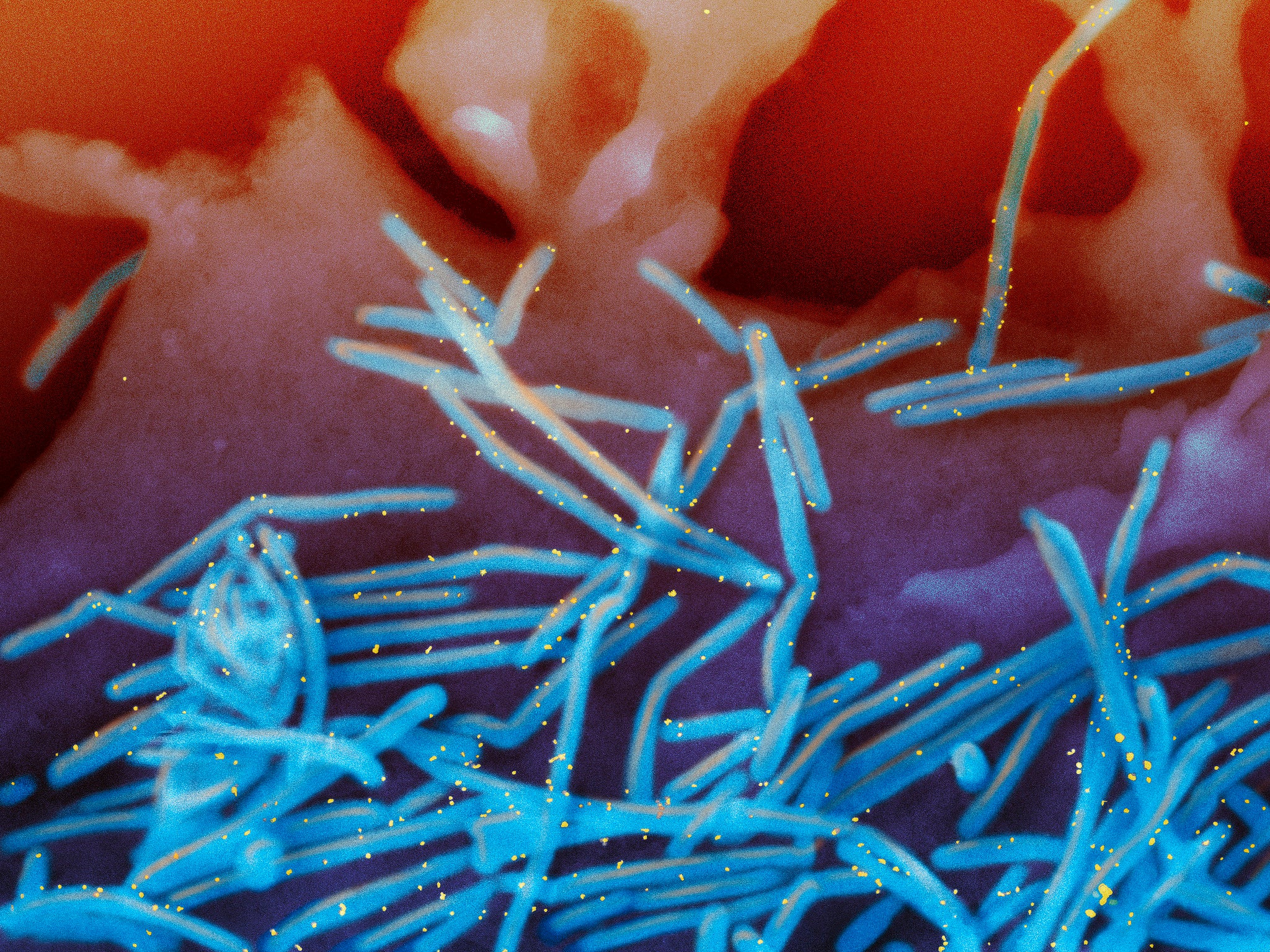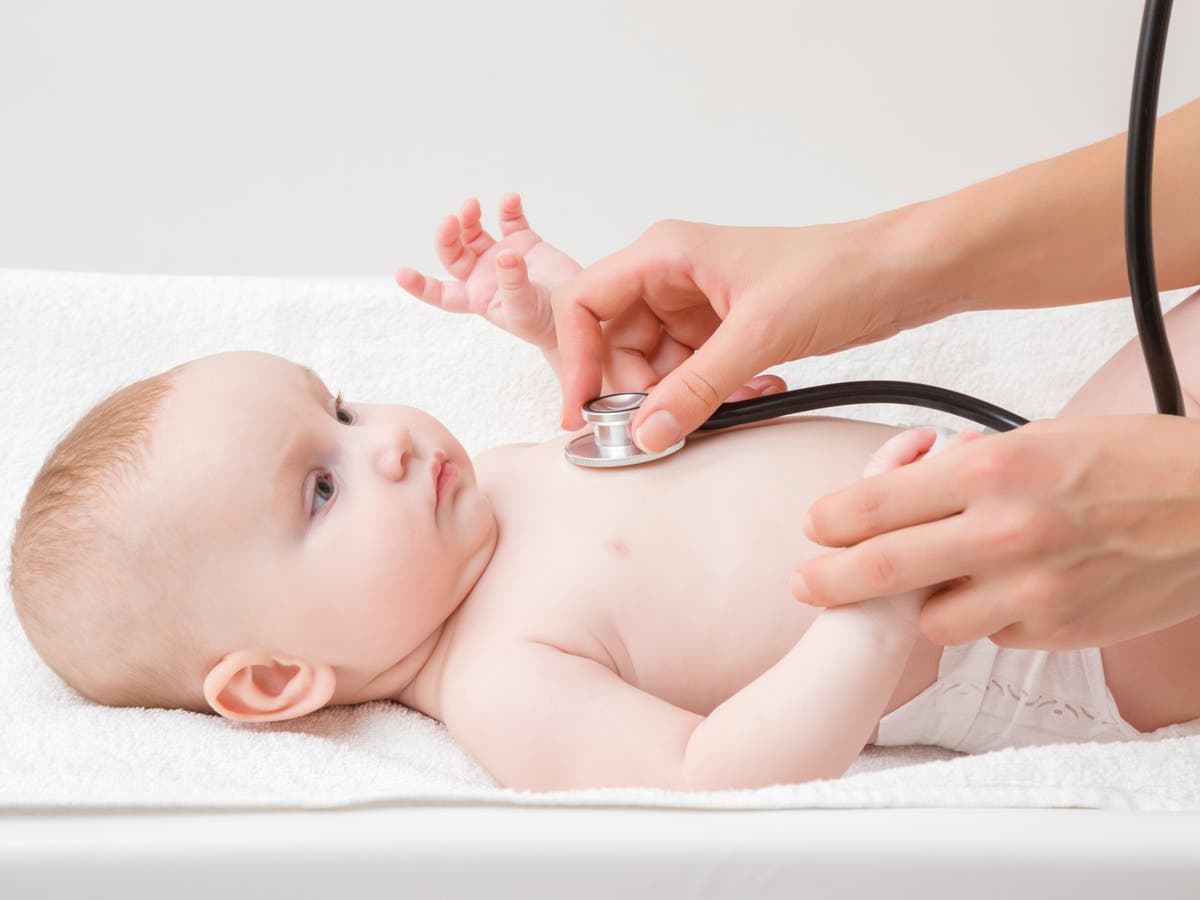Parents are being warned to look out for symptoms of Respiratory Syncytial Virus (RSV) in their newborn babies as the NHS prepares for overcrowding this winter.
The infection causes mild, cold-like symptoms but it can lead to severe lung infections like pneumonia and infant bronchiolitis and is especially dangerous to toddlers under two or with other health problems.
As cases rise with the virus often spreading in schools and offices during winter The Independent takes a look at the symptoms you should look out for:
Lara Bowen, whose son was hospitalised with bronchiolitis, noticed something was not quite right about her baby Billy three weeks after he was born.
“He was a bit snuffly and sleepy. He wasn’t waking to feed as normal and I noticed his little chest was heaving,” she said. “I took him to see the GP who said to take him to A&E straight away. It all felt a bit surreal.”

Lara, who gave birth to Billy while living in London but now lives in Brighton, added: “He slept for almost the entire time because he seemed to have little energy for anything else.
“Luckily, I was still able to feed him. I know of babies who get even more unwell with bronchiolitis and their mothers have trouble holding and feeding their babies because of all the extra wires, monitors and tubes.”
Lara’s son Billy, who is now 11, was in hospital for three nights and luckily didn’t suffer any long-term issues.
RSV is spread through droplets in the air when the infected cough or sneeze and can be passed on by touching a surface contaminated by the virus like a doorknob, where it can linger for four to seven hours, according to the UKHSA.
NHS Sussex clinical director for children and maternity services and local GP, Dr Patience Okorie, said: “RSV is often prevalent among young children during this time of the year, and spreads easily via coughs and sneezes. It is best to know the signs and symptoms, and when you should seek further advice.”
“Transmission can be reduced through standard infection control practices such as respiratory hygiene, hand washing with soap and warm water, and cleaning of surfaces,” the UKHSA advises.
“Ideally, people with colds should avoid close contact with newborn babies, infants born prematurely (before 37 weeks), children under two born with heart or lung conditions and those with weakened immune systems. Smoking around young children is a risk factor for severe RSV infection.”
The RSV vaccine will be available to those over 75 and pregnant women over 28 weeks to help protect their babies. If mothers are vaccinated during pregnancy, the antibodies they make pass across the placenta to the baby to protect for the first six months after birth.
Last September The Independent revealed a stark warning from doctors that delays by ministers to roll out the vaccine would put children’s lives at risk and would heap pressure on NHS services at risk over winter.
Last winter was particularly bad for RSV among the under fours, who were the worst affected. Figures show at the height of the virus season at the end of November there were 44.83 admissions per 100,000 to ICUs for under four-year-olds.
How else can you prevent it?
There are also other things you can do to reduce your chances of getting or spreading the virus.
For example, the NHS website encourages people to regularly wash/wipe down toys and surfaces, and to try to avoid touching their eyes, nose or mouth when their hands are not clean. Official guidance also recommends using disposable tissues for sneezes and blowing your nose, and throwing them away as soon as you’ve used them.
Parents are also advised to try to keep newborn babies away from close contact with anyone who has a cold or the flu – especially if they were born prematurely or have serious health conditions.
How is RSV treated?
There’s no specific treatment for an RSV infection, but you can take paracetamol or ibuprofen if you have a high temperature and feel uncomfortable (always check guidance on packaging and speak to your doctor or pharmacist if unsure).
The NHS website also suggests using saline nose drops from a pharmacy if you need help with a blocked nose, and recommends drinking plenty of fluids.
Anyone experiencing serious or worsening symptoms, or signs of breathlessness, should seek medical help urgently.

